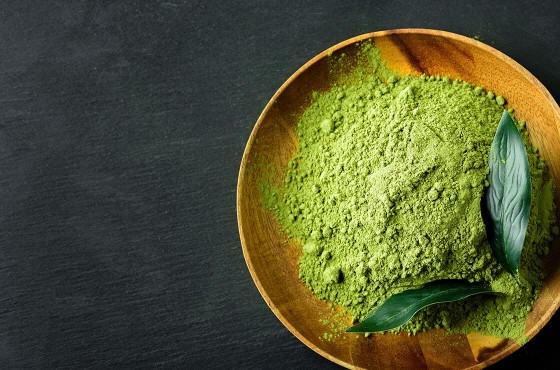Spirulina:
a natural, versatile super food
Written by Paul Musset, Doctor in Pharmacy | published on | updated on 17/04/2024

Dieticians are quick to tell you that spirulina is one of the most complete foods ever discovered. Thanks to its remarkable benefits, it can provide valuable support if you want to improve your nutrition.
It may be thousands of years old, but this algae is still very much up to date!
Spirulina is a microscopic living organism that owes its name to its spiral shape, which looks just like the cable on an old-fashioned telephone. Spirulina is a cyanobacterium rich in chlorophyll. Through photosynthesis, it produces its own organic matter from solar light energy. In exchange, it emits oxygen into the atmosphere. It is said that the presence of cyanobacteria was the very factor which enabled the Earth’s atmosphere to be breathable and the development of other life forms.
Spirulina first appeared on Earth more than three billion years ago. It became established and developed in the warm water found in certain parts of the world. In Mexico and in Chad, the valuable green slime was harvested using tight nets and, once it had dried in the sun, was eaten as patties.
In the 1950s, scientists in Europe and Central America were able to determine the algae’s composition more precisely. They revealed its exceptional composition , which led to it being christened green gold or blue gold.
The exceptional composition of spirulina
Spirulina contains large amounts of high-quality plant protein (around 70%). It is also full of:
- unsaturated fatty acids (omega 6);
- numerous vitamins: vitamins A, B12 and vitamin D;
- minerals: calcium, copper, chrome, potassium, zinc and high levels of iron;
- pigments: beta-carotene, phycocyanin, chlorophyll and
- enzymes.
A table of comparisons for spirulina
1 tablespoon of spirulina contains:
• as much protein as 15 g of beef;
• as much iron as a bowl of spinach;
• as much calcium as a glass of milk;
• as much beta-carotene as 5 carrots.
What are the long-term benefits of spirulina?
It is an antioxidant
Spirulina is rich in antioxidant molecules to help the body combat the formation of free radicals. This slows the ageing process and tissues become more supple. The body’s defences are also optimised by the presence of essential fatty acids and certain pigments.
It stimulates the body
Spirulina boosts cellular oxygenation and muscle development. This explains its popularity among sports people and body builders. The many vitamins it contains help to combat tiredness effectively.
It is an effective supplement for sufferers of anaemia
Spirulina is rich in vitamin B12 and an easily absorbed form of iron. This makes it a valuable nutrient for pregnant women, growing children and groups prone to deficiencies.
It purifies the body
By eliminating toxins, spirulina helps the body recover after periods of exertion and restore a healthy digestive system.
It supports weight loss
The protein contained in spirulina helps to suppress the appetite. That is why people following a weight-loss diet are advised to consume spirulina 15 minutes before a meal.
The benefits of spirulina after a few weeks
If you decide to start taking spirulina, you will notice the initial results at the end of the first few weeks:
- Your hair will be strong and shiny, your nails less prone to breaking and minor imperfections (fungal infections, etc.);
- Your skin will be more flexible and supple. It will be more balanced with less acne and less dryness;
- You will be more resilient to physical or mental fatigue;
- You will recover more easily after intense exertion;
- Your digestion will be better.
How is spirulina consumed?
Like any algae, spirulina may absorb the toxic substances found in its environment. This is why you should only use spirulina from monitored sources which conform with regulations.
There are many different types of spirulina preparation and each individual must choose the most appropriate form for their specific needs. Tablets and capsules make it straightforward to take the correct dose and mask the taste. Powdered spirulina can be incorporated easily into everyday foods (in yoghurts, on salads, etc.) but it has a strong flavour that is not to everyone’s taste. Spirulina is also available in creams to enhance the skin’s beauty and radiance! Cocoocenter offers a wide range of nutritional spirulina supplements, such as highly concentrated formulations Phytoceutic Spiruline Forte containing 1,000 mg per tablet, or Flamand Vert Spiruline, which comes in microgranules to dilute in a glass of water or fruit juice.
How should spirulina be taken?
When you begin a course of spirulina, you should start with a low dosesand increase the amount gradually. The ideal dose recommended as sufficient for the majority of consumers is 1 g during the initial weeks, increasing to 3 g. Sportsmen and women who are training for a period of intense exertion may increase their intake to 8 or 10 g per day. Owing to its stimulant effect, it is advisable to spread your intake of spirulina across the morning and lunchtime and take it before or during meals.
To maintain the quality of the ingredients, spirulina should be stored in a cool, dark place and should never be heated directly. If possible, choose spirulina sold in a non-transparent bag or tub.
Why eat spirulina?
Spirulina is a completely natural foodstuff which does not usually present any side effects or danger of overdose or toxicity. The benefits of spirulina are available to everyone: young and old, sportsmen and women, pregnant women (subject to medical advice), people undergoing intensive treatment and those who wish to reduce their intake of animal protein (vegetarians and vegans, etc.)
Furthermore, spirulina is produced under optimum environmental conditions. No processing or cooking is involved in its production. It therefore does not create pollution and uses very little energy. Moreover, France has seen huge growth in spirulina production over the last 15 years.
- Eric FavreOrganic Spirulina 100 Tablets
![Eric Favre Organic Spirulina 100 Tablets]()
- JuvamineSpirulina 90 Tablets
![Juvamine Spirulina 90 Tablets]()
- ArkopharmaArkocaps Organic Spirulina 45 Capsules
![Arkopharma Arkocaps Organic Spirulina 45 Capsules]()
- PharmUpOrganic Spirulina 500 Tablets
![PharmUp Organic Spirulina 500 Tablets]()
- SuperdietSpirulina Organic 120 Capsules
![Superdiet Spirulina Organic 120 Capsules]()
- NaturlandOrganic Spiruline 75 Vegecaps
![Naturland Organic Spiruline 75 Vegecaps]()
- Forté PharmaSpirulina Forte 1500 30 Tablets
![Forté Pharma Spirulina Forte 1500 30 Tablets]()
- S.I.D NutritionOrganic Spirulina 500mg 200 Tablets
![S.I.D Nutrition Organic Spirulina 500mg 200 Tablets]()
Spirulina is known as a super food because it incorporates so many components that are essential for our health. In addition, its very thin cellular wall means it dissolves quickly, enabling its active ingredients to be absorbed rapidly.
Three points to remember about spirulina:
- Spirulina is one of the oldest life-forms still found on Earth;
- Its outstanding composition allows it to address nutritional imbalances with ease;
- It has a number of positive long-term impacts and should be taken over a period of time, but its effects will begin to be felt after just a few weeks.

























